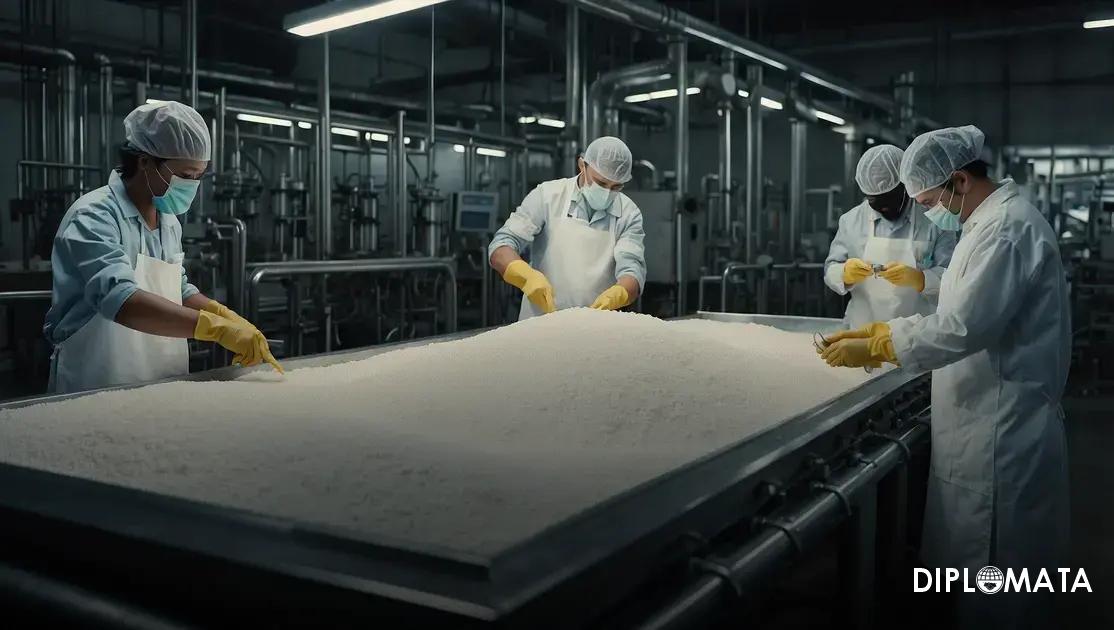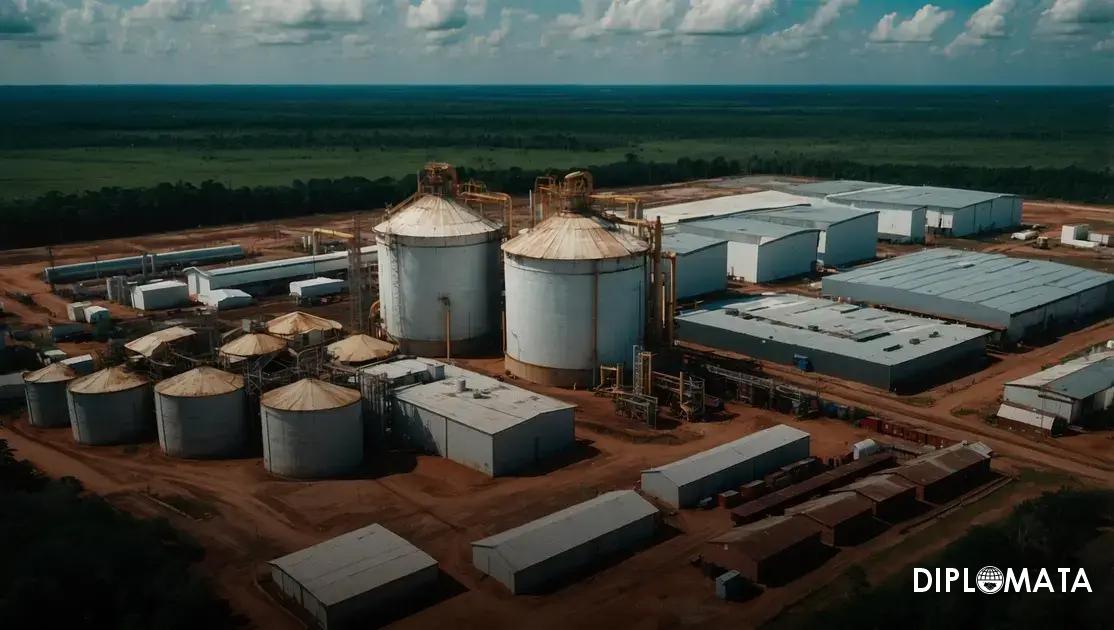How to educate staff on chemical compliance requirements? This process involves training employees on regulations and standards regarding chemical safety and management.
How to educate staff on chemical compliance requirements? In today’s complex regulatory environment, it’s crucial for companies to ensure their employees are well-informed about chemical compliance. This post will guide you through effective strategies to train your staff, fostering a culture of safety and adherence to regulations. You’ll discover practical methods for creating engaging training programs, the importance of continuous education, and how to leverage resources to keep your team updated. By the end, you’ll be equipped with actionable insights to enhance your workplace’s chemical safety compliance.

In an era where chemical safety is paramount, understanding how to educate staff on chemical compliance requirements is not just a necessity; it’s a responsibility. The implications of non-compliance can be severe, ranging from legal penalties to jeopardizing workplace safety. This article aims to provide a comprehensive guide on how to effectively educate your staff, ensuring that your organization adheres to all chemical industry regulations.
Understanding the Basics of Chemical Compliance
To begin, it’s crucial to grasp the fundamental concepts surrounding chemical compliance. Compliance refers to the adherence to laws, regulations, guidelines, and specifications relevant to chemical safety. Key regulatory frameworks include the Occupational Safety and Health Administration (OSHA) standards and the Environmental Protection Agency (EPA) regulations, among others. Understanding these regulations is essential for any organization handling chemicals.
- Key Terminology: Familiarize your staff with terms such as Material Safety Data Sheets (MSDS), chemical exposure limits, and hazardous waste regulations.
- Essential Components: Compliance encompasses risk management, proper labeling, employee training, and emergency response protocols.
The Significance of Compliance Education for Staff
Educating staff on compliance requirements is not merely a regulatory checkbox; it significantly enhances workplace safety and operational efficiency. Here’s why:
- Reducing Risks: Proper training minimizes the risk of accidents and exposure to hazardous materials.
- Enhancing Workplace Safety: A well-informed staff is more likely to identify potential hazards and act accordingly.
- Improving Regulatory Adherence: Consistent education ensures that employees are aware of the latest regulations, helping the organization avoid costly fines.
- Fostering a Culture of Responsibility: When employees understand the importance of compliance, they are more likely to take ownership of safety practices.
Criteria for Selecting Effective Training Programs
Choosing the right training program is vital for effective compliance education. Consider the following criteria:
- Program Content: Ensure the material is relevant to your industry and includes up-to-date regulatory information.
- Delivery Methods: Look for programs that offer a mix of in-person and online training to cater to different learning styles.
- Trainer Qualifications: Verify that trainers have expertise in chemical compliance and relevant industry experience.
- Alignment with Industry Standards: Ensure that the program meets or exceeds the compliance standards set by authorities.
Step-by-Step Process to Implement Compliance Training
Implementing an effective compliance training program involves a structured approach. Here’s a step-by-step guide:
- Planning the Training: Identify the topics to cover based on your organization’s specific needs and compliance requirements.
- Developing Materials: Create engaging training materials that facilitate understanding and retention.
- Scheduling Sessions: Plan training sessions at convenient times to maximize employee participation.
- Integrating Assessments: Use quizzes and practical exercises to assess understanding and reinforce learning.
Advanced Strategies for Enhanced Compliance Training
To take your compliance training to the next level, consider these advanced strategies:
- Innovative Learning Techniques: Incorporate gamification and interactive elements to make learning engaging.
- Use of Technology: Leverage online platforms and mobile apps to provide training that is accessible anytime, anywhere.
- Engaging Employees: Foster discussions and feedback during training sessions to keep employees engaged and invested.
Common Pitfalls in Compliance Training and How to Avoid Them
Even with the best intentions, organizations can fall into common traps when implementing compliance training. Here’s how to avoid them:
- Lack of Engagement: Ensure the training is interactive and relevant to keep employees interested.
- Insufficient Resources: Allocate adequate time and budget to develop a comprehensive training program.
- Failure to Adapt Training to Audience: Customize training materials to match the knowledge level and roles of your employees.
Conclusion
Effective education on chemical compliance is crucial for the safety and success of your organization. By understanding the basics, recognizing the importance of training, selecting appropriate programs, and implementing them strategically, you can foster a culture of safety and compliance. Remember, the goal is not only to meet regulatory requirements but also to create a safe and responsible workplace.
Our Expertise in Chemical Compliance
This content reflects our deep expertise in the chemical industry. With 20 years of experience, we specialize in manufacturing and supplying high-quality chemical products. Our authority as a leading supplier in the market positions us as a trusted source for understanding how to educate staff on chemical compliance requirements.
Our Location: Av. Ipanema N° 165 – Empresarial 18 do Forte, Barueri – SP. CEP: 06472-002
Frequently Asked Questions
What are chemical compliance requirements?
Chemical compliance requirements are regulations that organizations must follow to ensure the safe handling, storage, and disposal of hazardous substances. These regulations are designed to protect employees, the environment, and public health. Compliance often involves understanding local, national, and international laws related to chemicals.
How can I assess my staff's knowledge of chemical compliance?
To assess your staff's knowledge of chemical compliance, consider conducting surveys, quizzes, or interviews. You can also implement hands-on training sessions and evaluate their performance in real-life scenarios. This will help identify knowledge gaps and areas needing improvement.
What training methods are effective for educating staff on chemical compliance?
Effective training methods include interactive workshops, e-learning modules, hands-on demonstrations, and regular safety drills. Incorporating real-life case studies and encouraging discussions can enhance understanding. Additionally, providing access to resources such as manuals and safety data sheets is beneficial.
How often should staff be trained on chemical compliance?
Staff should receive training on chemical compliance at least annually. However, additional training may be necessary whenever new chemicals are introduced, regulations change, or after incidents. Frequent refreshers ensure that employees remain aware and compliant with safety protocols.
What resources are available for chemical compliance training?
Resources for chemical compliance training include online courses, industry-specific training programs, government publications, and materials from organizations such as OSHA or EPA. Additionally, many professional associations offer workshops and seminars on best practices and regulatory updates.





